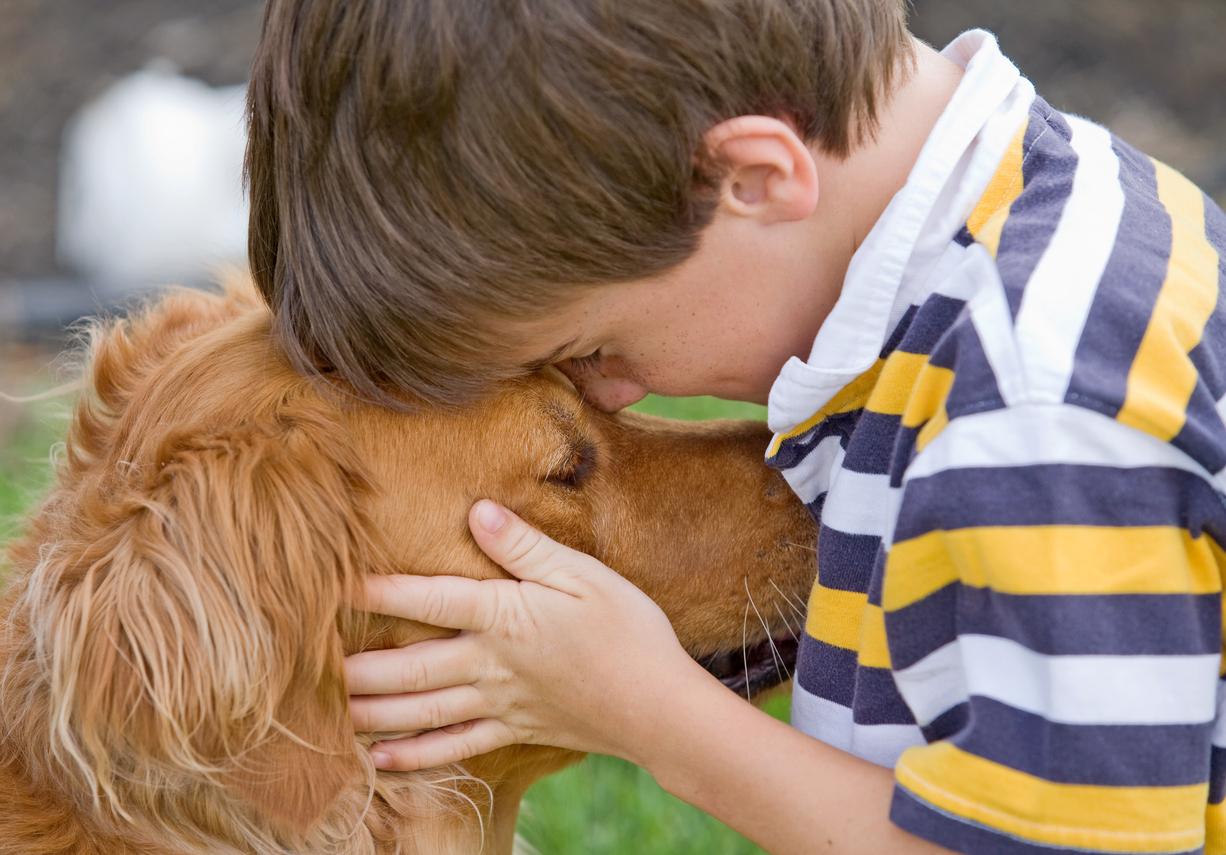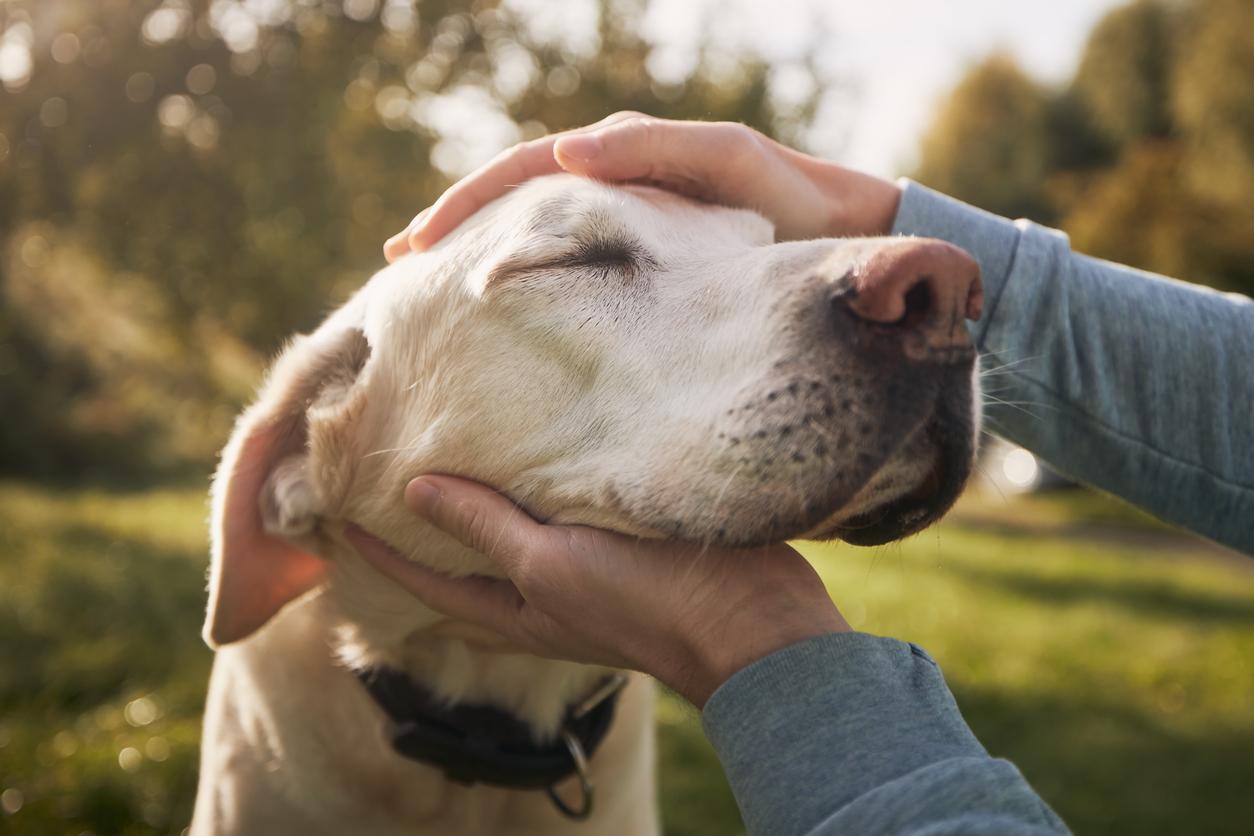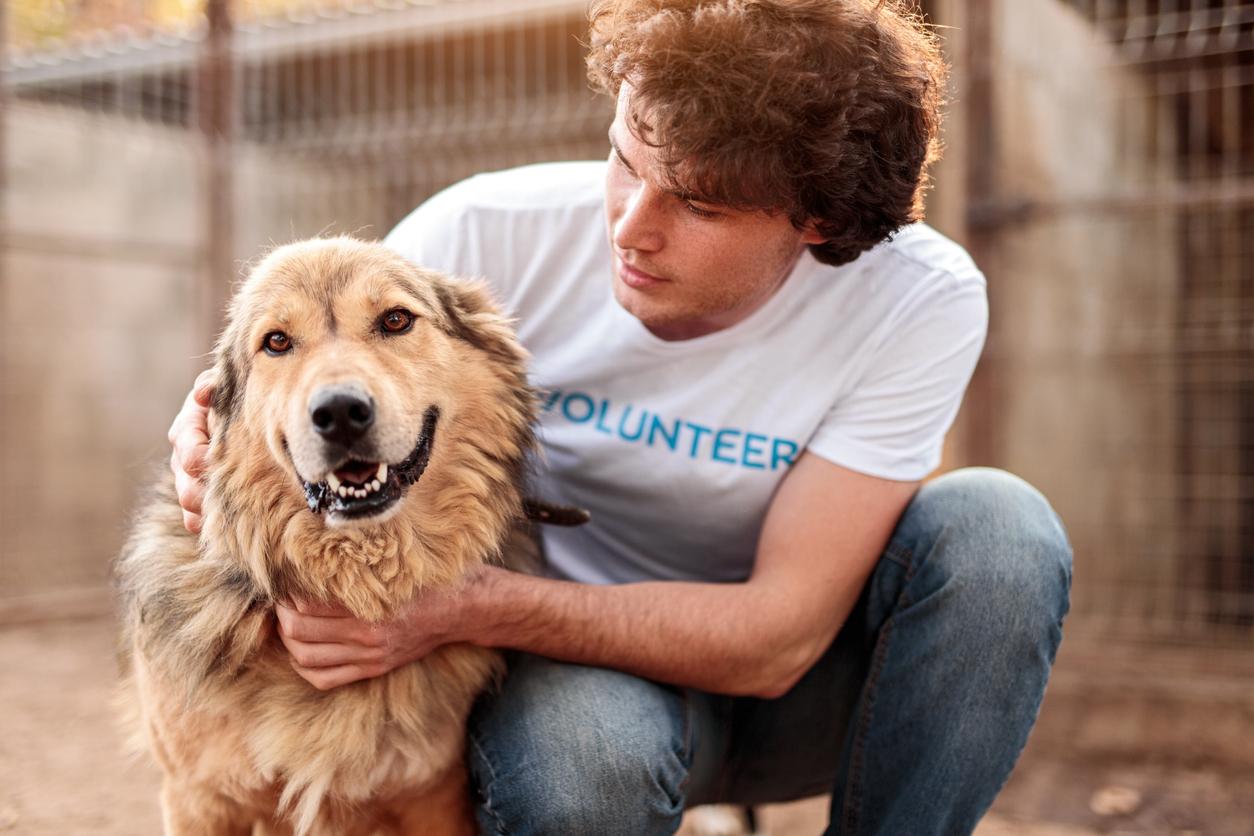A series of experiments carried out by American researchers have shown that, if their owner is in distress, most dogs will go to save him. Provided you have the capacity.

- In an experiment where humans were locked in a box and called their dog to come and rescue them, a third party did.
- According to the researchers, the beasts that did not save their master did not do so because they did not know how.
- They therefore now plan to study in more detail the willingness of dogs to attempt a rescue when they are not rewarded by the physical proximity of their master.
This will please dog lovers. While everyone knows that having a dog has many health benefits, man’s best friend is of course best known for his loyalty and fidelity to his master. Today, a new study published in the journal Plos One comes to scientifically prove this popular belief. According to researchers at Arizona State University (ASU, USA), if their owner is in distress, most dogs will come to their rescue. As long as they can.
The study had two main goals: to determine whether or not the dogs want to save their owners and, if so, to understand their “reasons”. “The difficult challenge is to understand why they do it”says co-author Joshua Van Bourg, a graduate student in ASU’s Department of Psychology.
For their experiments, the scientists followed 60 dogs and their owners. During the distress test, the subjects were in a box with a door that was light enough for a dog to push aside to free them. The owners then called for help (they had been trained beforehand to make their cry sound authentic), without calling out the dog’s name to rule out obedience as a factor in the dog’s response. . Result: while none of them had undergone rescue training, about a third of the dogs saved their master in distress. That “doesn’t look very impressive on its own, but really is on closer inspection”assures Joshua Van Bourg.
“Most dogs want to save you, but they have to know how”
According to him, “the key here is that, regardless of each dog’s understanding of how to open the box, the proportion of dogs that rescued their owner greatly underestimated the proportion of dogs that wanted to rescue their owner”. They then performed a control experiment where the dogs had to open the same box containing food. “The fact that two-thirds of the dogs didn’t even open the box to feed is a pretty strong indication that rescue requires more than motivation — there’s something else at play, and that’s the ability element. ”, he continues. Of the dogs that managed to open the box during the control experiment, 84% saved their owners. Thereby, “most dogs want to save you, but they have to know how”suggests Van Bourg.
“Control test results indicate that dogs that fail to save their people are incapable of understanding what to do — it’s not that they don’t care about people”adds Clive Wynne, canine scientific collaborator of the ASU.
Finally, the owners sat in the box reading. As they relaxed, 16 out of 60 dogs opened the box to join them. Also dogs are more motivated when they sense their master in distress. “Most of the time, it is not necessarily about rescue. But that doesn’t take away from the fact that dogs are truly special. Most dogs would rush into a burning building simply because they can’t stand being separated from their owners. How cute ! And if they know you’re in distress, well, that ups the ante”continues Van Bourg.
“During the distress test, the dogs were much more stressed”
“What’s fascinating about this study is that it shows that dogs really care about their owners.”. “Even without training, many dogs try to save people who seem in distress — and when they fail, you can always see how upset they are.”enthuses Clive Wynne.
Indeed, during the tests, the dogs expressed their stress by barking or whining. “During the distress test, the dogs were much more stressedexplains Van Bourg. When their master was in distress, they barked more and they cried more. In fact, eight dogs whined, and they did so during the distress test.”
For the time being, researchers still do not know if this is a form of emotional contagion or a real concern. They therefore now plan to study in more detail the willingness of dogs to attempt a rescue when they are not rewarded by the physical proximity of their master.
Dogs in medical research
Dogs are a constant subject of research for scientists. Recently, English scientists had the idea of training dogs to detect people with Covid-19. This is the same team that had proven that well-trained dogs could detect with very high accuracy. smells from people with malaria.
In France, researchers at the Institut Curie are working on training dogs to detect breast cancer. They had presented the first promising results of their study on the occasion of Pink October, a few months ago. According to them, specially trained dogs could recognize the smell of the tumor in the sweat of sick women.
Finally, studies have already shown that having a dog reduces anxiety and reduces the risk of stroke and heart attack, especially because it encourages people to exercise. It would also seem that children who have grown up with a doggie are less likely to develop schizophrenic disorders later.
.















